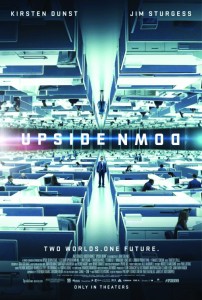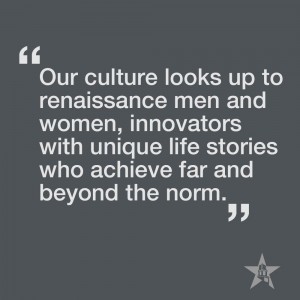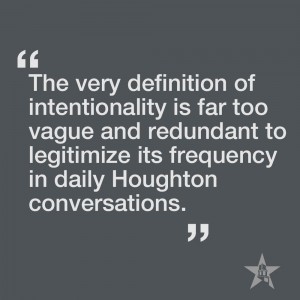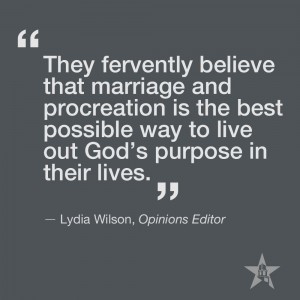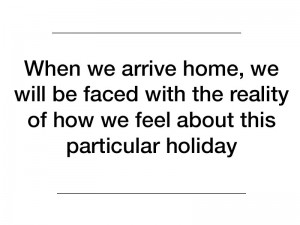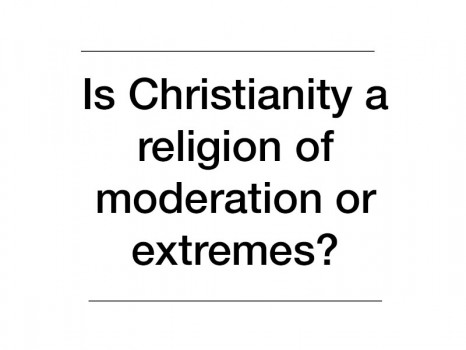In the aftermath of the L.I.F.E. Club panel, a good portion of the resulting conversation has been devoted to whether or not the question “When does life begin?” was properly addressed. No matter the speaker’s opinion about the panel as a whole, all voices seemed to agree that this is vital question that needs to be addressed before any dialogue concerning abortion can occur. I have to say, I think this precondition is incredibly damaging, regardless of which position you take.
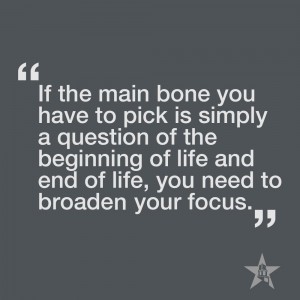 The motives of those who ask this question are the same: to determine whether or not abortion can be considered morally wrong, and therefore punishable by the law. Pro-lifers push toward conception. Pro-choicers push toward birth. Each wants to feel justified in their argument. They want to feel irrefutable. And so they seek out ultimatums. Is abortion murder? From each side comes either a resounding yes or no. The problem is that this becomes the beginning and end of the conversation. No middle ground can be reached. And few people have realized that this is perhaps the most irrelevant question anyone could be asking.
The motives of those who ask this question are the same: to determine whether or not abortion can be considered morally wrong, and therefore punishable by the law. Pro-lifers push toward conception. Pro-choicers push toward birth. Each wants to feel justified in their argument. They want to feel irrefutable. And so they seek out ultimatums. Is abortion murder? From each side comes either a resounding yes or no. The problem is that this becomes the beginning and end of the conversation. No middle ground can be reached. And few people have realized that this is perhaps the most irrelevant question anyone could be asking.
To begin with, let’s look at what’s being said. There are those who are pro-life. They see abortion as a definitive act of killing. Something was created, and abortion destroyed it. They want abortion to be completely illegal. They are “anti-abortion.” If that’s one side of the argument, then the other side should be… “Pro-death”? No, that’s not it. Are they “pro-abortion”? No, that’s not it either. Pro-lifers are anti-abortion, but they are facing off against those who identify themselves as pro-CHOICE. Is it just me, or are “life” and “choice” not exactly opposites? Perhaps the reason the arguments between the two camps haven’t been going anywhere is that they aren’t actually arguing about the same thing.
No one, I can guarantee you, no one besides Daniel Tosh is out there in the world swinging a sign that reads “We should have abortions!” Rather, the appeal is this: “We should have the RIGHT to have abortions!” Most of you reading this will likely believe that abortion is killing, and that killing is wrong. You’ll also most likely think that no one should have the right to kill. But since there’s also no one out there (I’m guessing) with a sign that says “We should have the right to murder!” there must be something different about abortion. There’s clearly a reason that anyone would fight to allow this action, or to contradict its immorality. So, these are the questions that we should be asking, to replace the extraneous question of life: What are the reasons for abortion? And, what can we do to eliminate those reasons?
A person’s choice to have an abortion is, of course, inspired by any number of unfortunate factors: poverty, rape, incest, age, violence, medical issues, mental instability, and any number of extreme situations— there are babies born into slavery and prostitution, babies born destined to end up abandoned. Whether or not you agree that all of these circumstances merit an abortion, certainly you can see how some of them do, or at the very least, you can recognize the need for a system that can be responsible for the infants it prevents from being aborted. You can recognize the need for improved sex education. You can recognize the need for a change.
So, is abortion murder? Who cares? The truth is, abortion does not matter. It doesn’t. If the main bone you have to pick is simply a question of the beginning and end of life, you need to broaden your focus to include any kind of death—death from war, death from starvation, death disease. All of these deaths, including death from abortion, grow out of the same causes—poverty, power and control, lack of education, terrible situations. Untimely deaths will not cease until these causes are eradicated. So in the meantime, yes: women should have the right to have an abortion. And, no: we should not talk about whether or not that’s wrong. Because the way to prevent abortion, and war, every other kind of injustice in the world is not to tell people to “just stop.” The way to prevent it is to make it unnecessary. That’s an enterprise I think everyone can support, be they pro-life or pro-choice.

